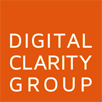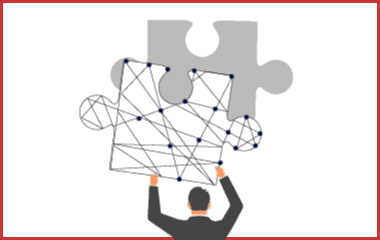Analysis of the Ektron announcement
It was an exciting weekend for the folks at Ektron, having received a second round of growth equity funding from their primary backer, private equity firm Accel-KKR. Unfortunately, they learned a hard lesson about public relations in the process. While their announcement said they received a “significant” investment, their inspired base of ex-employees illegally leaked documents showing that “significant” actually equals 100%. Unfortunately, this sent the Twitterverse and some TMZ-wannabe industry publications into an uproar, causing many to speculate that Ektron “seems to have come to a stunningly disappointing end.”
I hate to disappoint, but why, pray tell, would a financially-savvy investment firm buy a company, only to bring it to an end? While that may make for good headlines, it doesn’t make sense in the real world. Here’s an explanation for why it may make good sense, and what I believe is in the works, as well as some implications for customers and prospects.
First, some background
It is no secret that Ektron was once far more popular than it is today. It is also no secret that both its pricing and product have changed significantly over the course of the last 10 years. Ektron has always faced an uphill challenge of toting its customer base along with it as it extends the product and attempts to add capabilities. Frankly, there are a decent number of its 4,000 customers who may well have once bought the product on their credit cards given the old pricing model, and they would have done so strictly for the purpose of managing the content on their websites. But how, on one hand, do you attempt to shift out of the Web Content Management (WCM)-replacement market and into the marketing revenue-generation market to compete with the likes of Sitecore and EPiServer (more on EPi later), while on the other hand maintain a base of customers who either are smack in the middle of the SMB or are departments within larger enterprises? The answer is, you don’t. Not without a drastic change in your model. Of those 4,000 customers, only half are currently on maintenance. And since Ektron had a no-customer-left-behind policy (my name, not theirs) until recently, a larger-than-normal number of their active customers are on old-but-supported versions of the product, far behind where the product stands today. And while all that sounds fairly negative, I don’t mean it to be. It’s just the way it is for Ektron. It’s not a small challenge.
Enter Software as a Service
SaaS is a new focus for Ektron since they released their cloud-based platform earlier this year, but it’s a smart direction for a firm with the aforementioned challenges since it offers low up-front procurement costs for customers, lower annual TCO for customers, and the company would have fewer versions of software to manage and support. And it’s very profitable in the long run. It is no doubt a strategy that any private equity firm would want to pursue. While typical perpetual license software firms sell for 2-5 times revenue, SaaS companies command more like 10-20x. But, there’s a really good reason that companies like Ektron cannot make a transition to SaaS on their own: cash. A SaaS model requires a lot of cash up front. Companies who follow the SaaS model (think Acquia, salesforce.com, etc.) are all heavily backed and take tranche after tranche of money because, counter to a perpetual model, growth turns their Income Statements upside-down. As SaaS companies grow their subscription bases, their expenses climb steeply while their revenues grow slowly; all their customer acquisition costs are incurred up front, yet customers only pay a month at a time. It usually takes anywhere from 12-36 months to reach break-even on a customer, with Ektron falling on the lower end of the range. However, the upside is that the average SaaS customer is worth far more revenue — up to 10x — than that of a perpetual customer on maintenance given the stickiness and financials of the model. If one can afford the initial cash drought, that’s a pretty good deal.
As it relates to Ektron’s active base of customers, about 60% of them are appropriate targets for its SaaS product (the others are just too small to afford even the current offering). Let’s just say, for argument’s sake, that only 30% of them convert. Given the 10x lifetime value of those customers versus its perpetual customer base, Ektron would still achieve 3x the previous revenues while serving a much smaller base of customers and managing fewer versions of the software. Not bad.
Implications for customers
But what does this mean for current Ektron customers? There may be a number of reasons not to choose Ektron (I gave a couple last year when I criticized management’s poor communication — something that apparently hasn’t improved much — and cited the state of their partner channel as problematic), but this news should not be one of them. In fact, this only makes the company stronger in my view. It is hard to imagine that a company whose private equity firm just doubled-down on them is underperforming. My understanding is that the catalyst for this deal came because the company beat its Q3 projections by a pretty wide margin. Of course, Ektron management makes a big deal out of any wins over rivals like Sitecore (who can blame them?), but even if they only focus on converting the existing customer base and add no new logos, they would be pretty well-served. Personally, I don’t think Ektron should continue to raise prices and go to battle in the “enterprise” cage match. Rather, I would advise that they stick in the mid-market where there are far more customers and much weaker competitors with smaller marketing budgets. After all, SaaS is a numbers play. The larger the install base, the higher the revenue curve goes when it becomes cash flow positive. And since SaaS tends to appeal to both smaller [than enterprise] companies as well as to departments within larger companies, the strategy should appeal to Ektron’s target market.
As for those who are considering Ektron for the first time, continue to evaluate the product and the company, as well as the even-more-important service provider options, against your needs just as you otherwise would. Investment from (or a sale to) an investment firm such as Accel-KKR alone should not scare you away. Their strategy has always been to take a large or majority stake, create value through profitable growth, and stay with businesses for 3-10 years. To me, this is a more appealing scenario than a company facing the symptoms of Founder’s syndrome.
But I’m just analyzing the recent news, not predicting Ektron’s ascension to the upper ranks. While I’m bullish on this move for sure, Ektron still faces challenges. The partner channel faces challenges, the product still has a reputation for quality issues, and the biggest threat to the success of the strategy I’ve outlined is the company’s recent tendency to over-value its software by placing a high price tag on it in order to avoid being the cheapest option in enterprise deals — deals which, in my opinion, it should shy away from in the first place in order to capitalize on its strengths. If the pricing is not right, whether SaaS or perpetual, the model can fail.
EPiServer rumors
Finally, rumors circulated this weekend that Accel-KKR recently acquired EPiServer, another .NET WCM+ product suite. Let’s stipulate that this is true. The next question is whether or not the two companies (Ektron and EPiServer) will be combined as some have speculated. I’m sure this may be considered, but to me, it wouldn’t make much sense beyond the obvious regional complements of customer bases — Ektron has a large base in the US, but has minimal European traction, while the opposite is true for EPi. Even so, if EPi were to become the primary brand, Ektron customers would be even more reluctant to renew in my opinion since EPi is a relatively unknown brand in the US, the product is more comparable to more popular competitors, and it’s an even bigger migration leap. If Ektron becomes the primary brand, it could be complemented with some of EPis other products / modules, such as EPiServer Commerce, but the European base of customers would not recognize the Ektron brand, and they would likely flee to more popular competitors. Sitecore would be licking its chops if this were to happen.
But here’s the other thing: it’s not uncommon for private equity firms to own more than one product company in the same sector. In fact, Accel-KKR also own North Plains, a digital asset management product company, so let the speculation begin there as well. While the arranged marriage is possible (Accel-KKR has done this sort of thing before), it would not be the smartest move in my opinion. If prospective customers want to wait to see how this shakes out, then it would be hard to blame them. But the answers should come pretty quickly.








